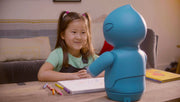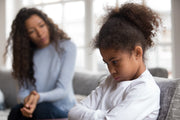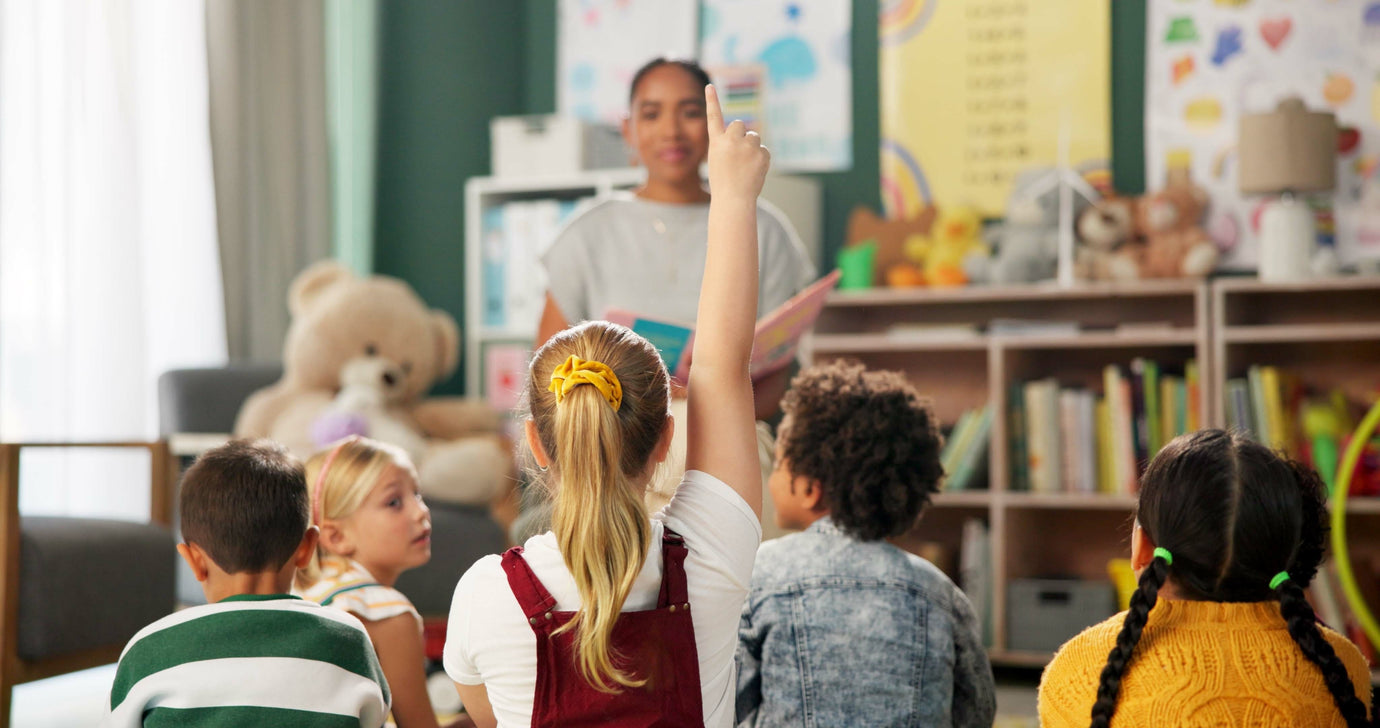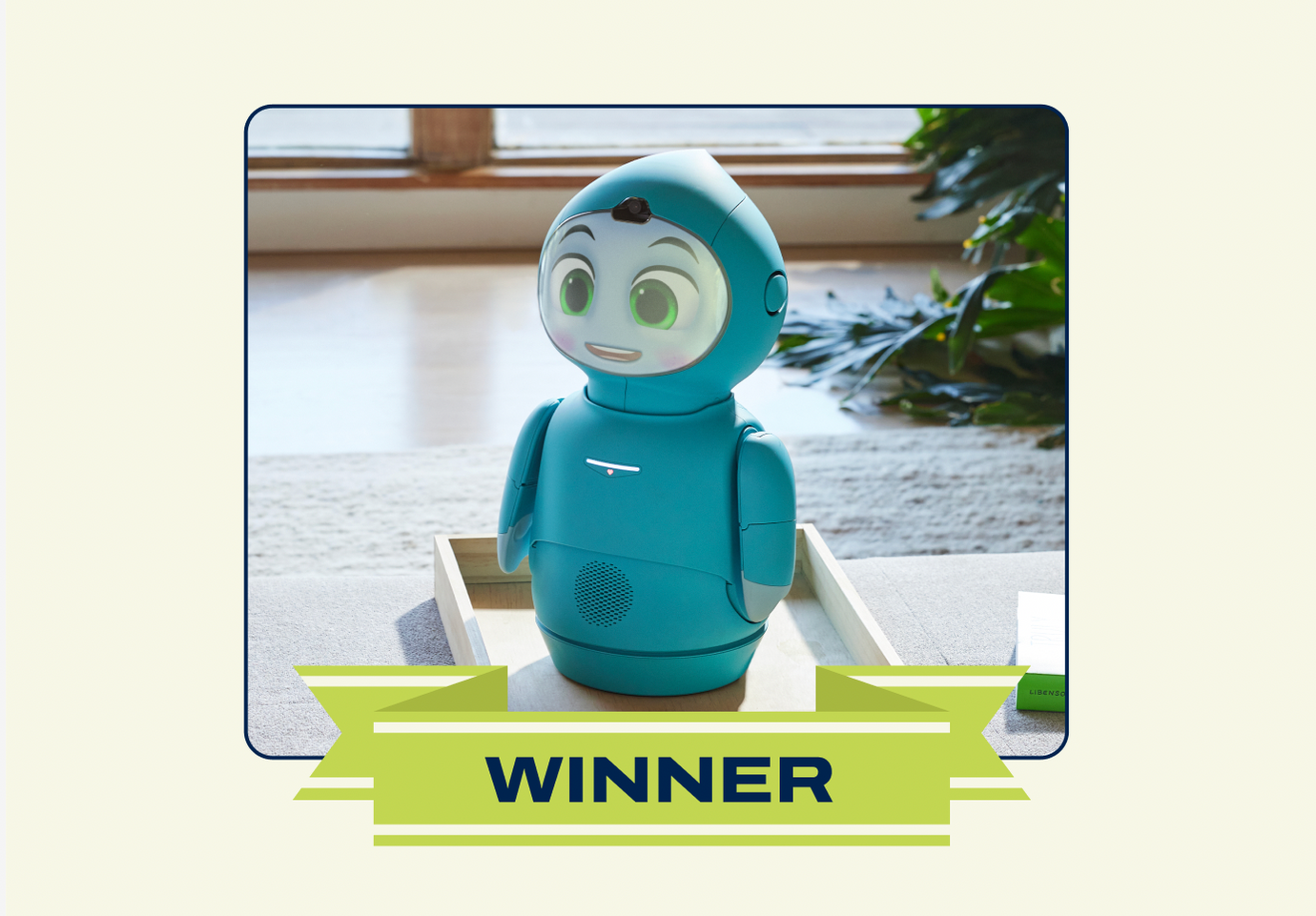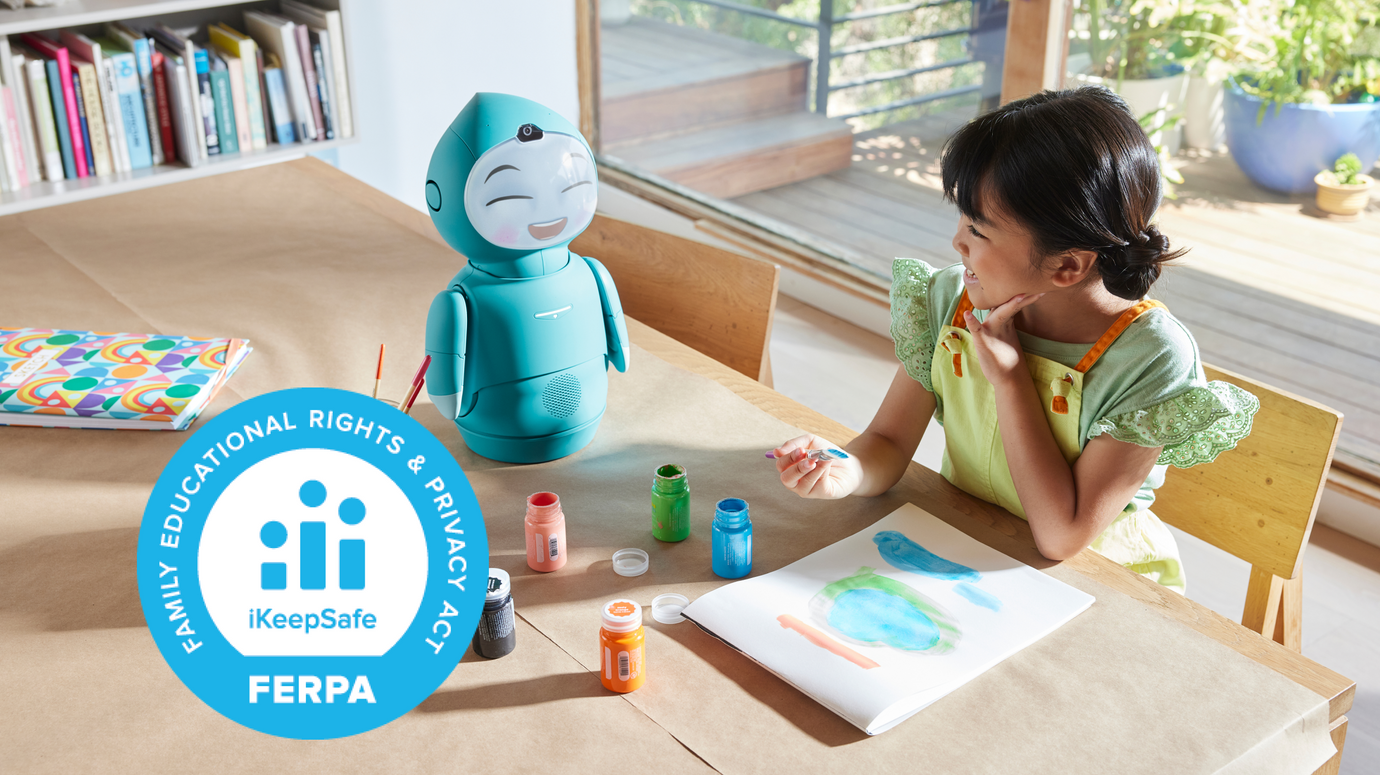Frequently Asked Questions (and Answers) about Child Anxiety
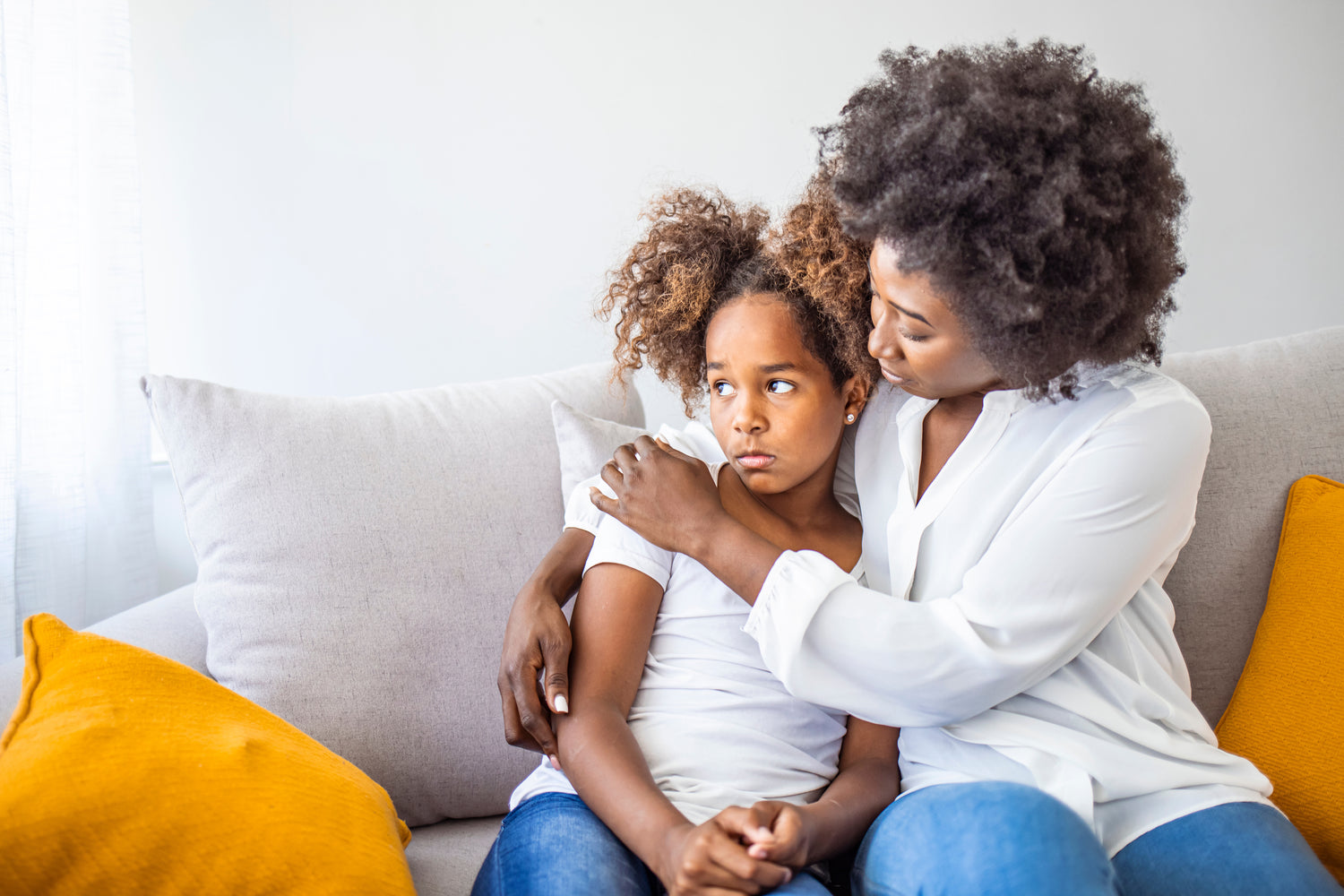
Anxiety in children is a tricky disorder to contend with. It’s perfectly normal for kids to experience fear, and anxiety itself is an evolutionary trait which in appropriate situations can keep us safe, however when the fears get a little too big or the anxiety lasts a little too long, it can become problematic, and even harmful.
Knowing your child has anxiety can be scary, but it’s important to understand anxiety for what it is so you can help your child to cope as best they can. That’s why in this article we’re answering some of your most frequently asked questions about anxiety in kids – let’s dive in.
What is child anxiety?
Anxiety in children follows the exact same mechanism as anxiety in adults – although we may not share all the same triggers.
Anxiety is a reaction of the autonomic nervous system where our brains and bodies flood with adrenaline and other hormones and neurotransmitters which trigger a fight-or-flight response in the face of danger, or perceived danger, or the possibility of danger. In the modern world, it can be triggered by things like bad traffic, a stressful conversation, or an impending homework deadline.
When we experience anxiety consistently, at inappropriate times, or as the result of imagined dangers, this is often when it becomes problematic and may be diagnosed as a disorder.

Can being overwhelmed cause anxiety in children?
Yes, being overwhelmed can cause anxiety in children.
A combination of stressful life events, obligations at school, fears and phobias, and just the difficulty of being a kid in the world today places a lot on small shoulders and the prolonged strain may cause longer-term anxiety to develop.
Anxiety can also occur when a child is feeling overstimulated by an excess of sensory input, especially if the child is autistic or has ADHD. In this situation, reducing stimulation or removing the child from a sensorily overwhelming scenario can help reduce the experience of anxiety.
Can anxiety cause tics?
Yes, anxiety can cause tics.
Tics are defined by the NHS as “...fast, repetitive muscle movements that result in sudden and difficult to control body jolts or sounds.” They are involuntary and relatively harmless, although the nature of specific physical tics may cause children to accidentally hurt themselves, or may be experienced as embarrassing.
The flood of adrenaline which characterizes anxiety signals to our muscles that we need to get ready to run, or fight, or scream to keep ourselves safe. When we experience anxiety, but have no predator to run from or are expected to keep still – as kids are in school and many other situations – this signaling to our musculature can result in the involuntary reactions we call tics.
Can anxiety cause restlessness?
Yes, anxiety can cause restlessness.
The biochemistry for anxiety-induced restlessness is similar to the one that causes tics. Our body believes we are threatened – whether the threat is imagined, perceived, or real – and wants us to get away from whatever the threat may be.
The physical reaction to this signaling can manifest as restless behaviors such as foot-tapping, hand-tapping, squirming, wiggling, or even getting up and moving around even when kids are being asked to be seated. Restless behaviors are distinct from tics, however they are still for the most part involuntary.
Can anxiety make you angry?
Yes, anxiety can make you angry.
Adrenaline is also associated with increased experiences of frustration, irritability, rage, and other emotions described generally as “anger”. This is the “fight” side of fight or flight, when our bodies are telling us that it’s time to turn around and take on the lion ourselves instead of trying to get away.
When children experience anxiety, it can make them feel helpless and out-of-control, which may cause them to lash out as a way to protect themself, or simply to expel some of the built-up energy which has no other way of getting out. If your child is angry, it’s important to understand why and help them build some healthy coping mechanisms which allow them to express their anger and work through anxiety safely.
Can anxiety cause OCD?
No, anxiety cannot cause obsessive-compulsive disorder.
The two disorders share some symptoms and characteristics, however they are completely distinct diagnoses, and one does not provide a causational effect for the other. However, anxiety and anxious episodes can provide a trigger for obsessive thinking or behavior in children who already have OCD.
If you think your child has obsessive-compulsive disorder, it is important to consult the opinion of a mental-health professional before attempting any kind of intervention or treatment.
Can anxiety cause eating and digestive problems in kids?
Yes, anxiety can cause eating and digestive problems in kids.
Children with anxiety disorders or who experience anxiety frequently may have physiological experiences of nausea which makes eating difficult, or can result in vomiting or diarrhea. In adults as well as children, irritable bowel syndrome and other psychosomatic digestive diagnoses are often the result of untreated anxiety or trauma.
In some cases, anxiety can also trigger disordered eating, characterized by over- or under-consuming food, which is not the result of physiological symptoms. Again, consult your child’s doctor or mental health professional if this is a pattern you notice.

Can anxiety cause depression in children?
Yes, anxiety can cause depression in children.
Long-term anxiety can exhaust the brain’s supply of chemicals which, when well-regulated, are responsible for creating pleasant emotions and keeping us motivated and active. When those chemicals are depleted, the lack of stimulation can result in depressive episodes until our brain has built its stores back up.
Anxiety can also lead your child to feel depressed if it results in certain behaviors. For example if your child is anxious and avoids social connection or feels frustrated with themself for being scared or worried, they may experience sadness and lethargy because they are not getting their social needs met.
What to do if you think your child has anxiety
There’s always more to learn about anxiety in children. You can start your journey here, with more content from Embodied including this overview on Generalized Anxiety Disorder in children, and tips to help your child cope in this list of guided meditations for kids with anxiety.
It’s important to stay well-informed about what could be going on with your kids and how you can help them to heal and thrive. However, you don’t need to do it alone. If you think your child might have anxiety, it is important to seek help from a licensed mental health practitioner first.

